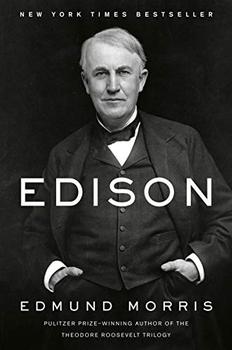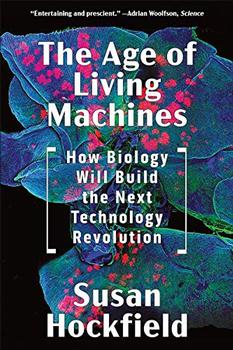Summary | Excerpt | Reviews | Beyond the book | Read-Alikes | Genres & Themes | Author Bio

Exploring the Marvelous Materials That Shape Our Man-Made World
by Mark MiodownikWhat if you were stabbed one day? What would your take-home message be? Maybe you would avoid that particular walking route, perhaps you would start carrying pepper spray, or you might chalk the incident up to the vagaries of life. If you were Mark Miodownik, however, you would marvel at the material that sliced through so much. Miodownik, who was stabbed on a London Tube while a schoolboy, admits that the moment was life-changing, almost an epiphany. As the police quizzed him about the accident, all he could do was to stare at the steel blade lying on the table between them and feel amazement at the razor's perfect edge. "It was the birth of my obsession with materials," he says in his delightful book, Stuff Matters.
 A single photograph showing the author at home, serves as anchor. Each chapter focuses on a different type of material in the picture: paper, chocolate, glass, plastic, concrete and more. In easy-to-understand prose, Miodownik explains each material's unique characteristics and delves into its often-colorful history and science. The photograph also drives home the point that materials are all around us. As the book moves along, we begin to appreciate their incredible ubiquity and realize how much we take them for granted.
A single photograph showing the author at home, serves as anchor. Each chapter focuses on a different type of material in the picture: paper, chocolate, glass, plastic, concrete and more. In easy-to-understand prose, Miodownik explains each material's unique characteristics and delves into its often-colorful history and science. The photograph also drives home the point that materials are all around us. As the book moves along, we begin to appreciate their incredible ubiquity and realize how much we take them for granted.
Miodownik's love for his subjects — all materials — is endearing. Years ago, when he was a doctoral student, he got into an argument with a fellow moviegoer at a showing of Butch Cassidy and the Sundance Kid. The older guy complained about the concessions being sold in plastic (instead of the glory days when paper ruled). "I was keen to defend plastic; a material that is often misrepresented," Miodownik writes, but his argument didn't come through well. Instead, both returned to their seats in a huff. "Whatever the factual basis of my argument, I didn't have the language to convey it in a meaningful way," Miodownik recollects.
He has since rectified the situation. Stuff Matters takes difficult subjects and makes them easily digestible; science might be a difficult pill to swallow for many, but Miodownik's light-hearted treatment belies the complex information he puts across so elegantly. Miodownik also wins by being so passionately enthusiastic that you can't help but be swept along. He fights for some much-maligned materials as if they were his own children. There are times when some efforts at readability are not successful; some bits read awkwardly. For example, because he got into a debate about plastics at a movie theater, Miodownik presents that chapter in the form of a screenplay. Let's just say that not all subject material can take that kind of treatment.
Nevertheless, Stuff Matters is a charming book, one that both science enthusiasts and newbies will appreciate. It is full of delicious nuggets of information: why cash registers need never worry about running out of ink; what makes up self-cleaning concrete — these are but a few examples.
In the 1967 movie, The Graduate, Benjamin Braddock (played by Dustin Hoffman), was famously pulled aside and given a critical piece of worldly advice: "I just want to say one word to you: Plastics," Mr. McGuire says to the young man. In Stuff Matters, Miodownik successfully rekindles that enthusiasm, not just for plastics, but for all manner of materials in our everyday lives. Read Stuff Matters because, well, stuff matters. You'll develop a whole new outlook for the many engineering wonders around us — from the tip of your ballpoint pen to knee joint replacements. Besides, you have it easy. Unlike Miodownik, you don't need to get stabbed to develop an appreciation for materials science. There really is no excuse.
Photo of Mark Miodownik courtesy of Houghton Mifflin Harcourt.
![]() This review was originally published in The BookBrowse Review in June 2014, and has been updated for the
April 2015 edition.
Click here to go to this issue.
This review was originally published in The BookBrowse Review in June 2014, and has been updated for the
April 2015 edition.
Click here to go to this issue.

If you liked Stuff Matters, try these:

by Edmund Morris
Published 2020
From Pulitzer Prize-winning author Edmund Morris comes a revelatory new biography of Thomas Alva Edison, the most prolific genius in American history.

by Susan Hockfield
Published 2020
From the former president of MIT, the story of the next technology revolution, and how it will change our lives.
Your guide toexceptional books
BookBrowse seeks out and recommends the best in contemporary fiction and nonfiction—books that not only engage and entertain but also deepen our understanding of ourselves and the world around us.